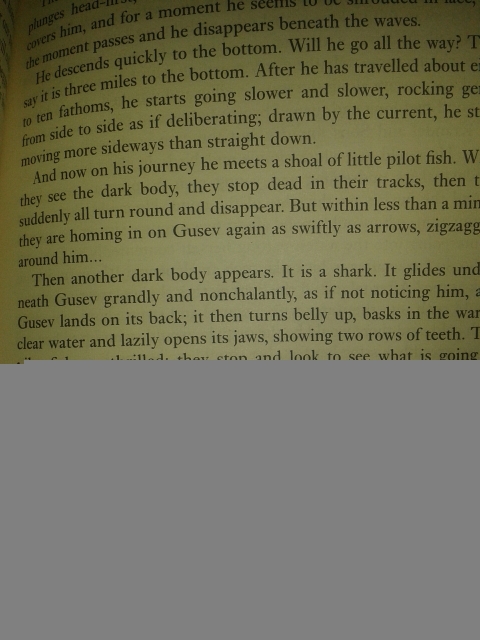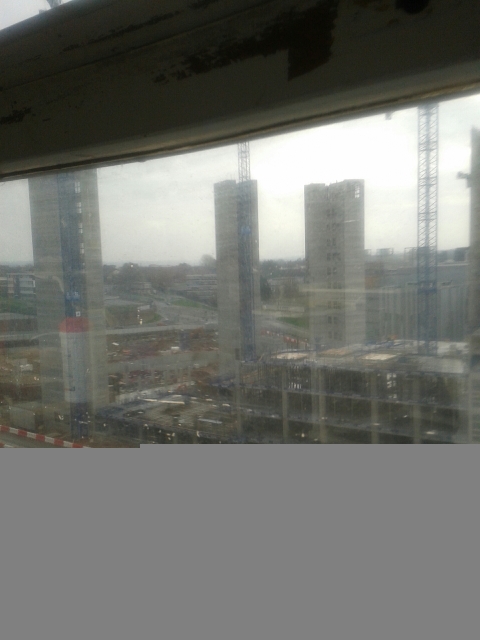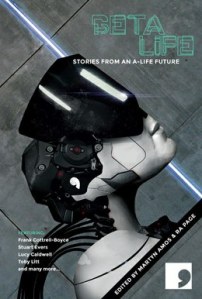The transition from medical marvel to sick man on a recovery ward takes a couple of sets of doors, half a corridor and a few seconds. Even the erstwhile wonder at the speed of my recovery is giving way to solicitation about the remaining breathing and immunological issues that are holding up the rate of my recovery. Time – all time – is flexible in here. The only minutes that are certain are those resembling a George Saunders dialogue, spacing apart the hours like lifebuoys.
Yes, a cup of tea please.
Yes, I will have breakfast. Coffee and bran flakes please.
Yes, I’ll have paracetamol.
Yes please. Cup of tea.
Yes I have. Yes they did open.
Much of this could have been predicted, once we’ve brushed past my failure to predict any of this. I’d never picked up before on the stockings, though. Ted stockings might sound like the support your feet and calves need to prepare you to sit through a long, smug presentation by an ideas-guy with a face mic, but they exemplify my institutionalisation. When I had barely returned to consciousness, I raged against the stockings, white knee-length, muscle-stranglers that made me resemble a Regency dandy, albeit one wearing robot feet. The feet snapped every few seconds, pushing my shins, ankles and toes in random directions. Later, when the (entirely necessary) tin leg-breakers had been removed, the stockings remained in place, a monumental, ever-present itch. Any offer I’d have to be relieved of them for a short while would be accepted gratefully. Some days they’d forget to put them back on and I’d fantasise about a consultant standing above me, telling me they’re ready for me to lose the stockings.
The other night, though, I noticed how puffy my bare feet were, and how cold they were in the bed, and I asked a nurse to put them back on. I think that might be a signal for a shift in how the blog’s going to progress because, in all fairness, that was a really boring story.
But I hope it’s fair to say it’s one I needed to tell.
Banal Fabulous
Posted on: November 19, 2014
I thought I’d use the previous post to give you a break from the gloopy pornography of my hospital stay, where my CT Scan from the other week is being passed around the surgical fraternity like a link to the John Merrick Flickr account. In all honesty, though, coma, intubation and paralysis do tend to promote solipsism. For all the moments of high drama, the propensity for massive danger or hope to arrive in a second; for all the emotional churn, the life resolutions, the love that’s been communicated not least via comments on this blog (for which my thanks are expressed briefly and generally but meant personally and fully); for all the scarification, hallucination and weird science, these two weeks have been overwhelmingly about waiting.
Now I’m on the recovery ward – the last bed before a potential temporary discharge until I’m pre-opped again to fix the thing they reckon I’ve spent my life adapting to so well it both delayed and guaranteed the implosion a fortnight ago – the blur of momentary sleep and wakeful dreaming is no longer a factor. Nevertheless, each day continues to be a glacial pursuit of banal triumphs.
The poetry is in the banal. Sometimes I feel like Primo Levi; sometimes it’s more like being on a long-haul flight. I spend days fixating on how to get this tube removed or downgraded – when it happens, there’s a moment of relief then I start to be irritated by another attachment I’d accepted previously. I crave taste and flavour when I’m nil by mouth then a week of banal hospital cake helps food lose its emotional heft.
It’s because the pace of life is necessarily slow, the distance between a positive decision and the
liberating action stretches like pizza dough and when holes start to appear, it can be easy to fall through them. Endurance and tolerance, Solomon Northrup rather than Grundy, are absolutely necessary but there’s a risk of atrophy in that too.
And then something happens.
This afternoon, Sally removed my remaining drains. I can now walk without having to negotiate the help of a nurse to disentangle my tubes and carry my bottles. All I’m connected to, for the time being, is oxygen. The bureaucracy of this situation just lost a layer of paperwork.
I’m still trying to tap these pieces out on my phone with one thumb so academic veracity is frankly a bit of a busk but when we talk about the birth of the modern short story, we go back to Poe and we go back to Chekhov, primarily because there we find the transition from the short tale as a succinct abridgement of the larger narrative to a specialised examination of the way life moves. The journey from one moment to the next.
Poe’s time passed by each moment creeping up on the last, magnifying unease and shrouded in trips and traps. Chekhov could see the passage of time in the way one moment withered away to form the next. The ultimate examination of withering time is Gusev, drawn from his own experience of a ship’s sick bay. There is a closing sequence, which once resembled a leap from realism to imagination but now I’m not so sure, in which Gusev, who has spent the story pinned to the ground in pain and convinced of his imminent recovery, died and is buried at sea. We follow his body floating down, inspected by a shoal of fish who then stand aside to allow Gusev his final moment with an almost disinterested shark. It is fantastically beautiful writing – the whole story – and I recommend Rosamund Bartlett’s translation.
It’s 6.11am in the High Dependency unit.
Sunrise Over Wavertree
Posted on: November 15, 2014
I could give you the big handover notes, talk you through my medical history and we could get puzzled or outraged as to how I got to November 4th so sick that a slightly later 999 call would have been too late.
I could go with self-accusation: Billy Grahaming up to my bad self-destructive ways; put my 20-year-old self on trial; blame it on the hot knives, the cold flats, the revolutionary delusions and of course the boogie.
I could get all Erin Brocovitch about it and resolve to find the guilty of the medical profession who didn’t foresee this all happening at any point over the last 45 years.
But my concern isn’t ‘How the hell did I get so sick?’ but ‘Who the hell isn’t this sick?’ Because, you know, there were local factors in the case of my body, but the sickness of keeping on slogging away in desperation, in increasing depression, trudging up and down the same bastard roads for an occasional glimpse of a honey pot – yes, exactly like Cormac Mccarthy’s Winnie The Pooh – that’s where to find the class action.
But I’ll narrow it down again because the sun just rose over Wavertree, my first sight of the sky since last Tuesday. I have rich memories of the morning skyline in Gdansk 15 years ago, waking up eye to eye with church spires, and of sky-tall building work over Dhaka, 9 years ago, watching the immense blood orange sun from my hotel window. These trips were two of the great working experiences of my life and those moments, realising that I was here, seeing this, because I made the choice of being a writer, are among the most fulfilling I’ve known. And this moment – I’ve been sat out in a chair by the window; the Ozymandian towers in construction for the new Liverpool Royal Hospital are striping the view of Archbishop Blanch school, Mount Vernon and the stretch from Edge Lane south to Runcorn; I have a coffee and a new Bolano – correlates quite precisely with those euphoric moments abroad. I am here because I’m a writer.
Here because I’m a writer: the life I’ve had to live to fight for the retention of that core truth; the logic I’ve neglected to follow because my sense of who I am and what I should be was bigger; the reward or revenge you get for making that call. Everything that put me in here. Everything it’s given me while I have been here. Everything my life was supposed to be about while my insides were fermenting like squalid moonshine, while I was maintaining the distance of one microsleep on the motorway away from being shovelled into one of the cement mixers outside instead of arriving via the ambulance bay into this world of brilliant humans and caring machines.
Tell me about your plans for the rest of the day.
I’ll Be C-ing U
Posted on: November 14, 2014
It shouldn’t produce separation anxiety. It’s not like it’s meant to have been a holiday or an exchange trip or something huggable like that but there’s a bed being prepared for me in High Dependency and after the induced coma, period of intubation before the first hernia op, the two seizures on successive nights and getting back to communication with the outside world the last couple of days, my shift nurse Evangeline has just brought me a jelly but I’m struggling to find anything else to keep her busy. Looks like I’ll be out of the ICU tonight and, in the absence of a way home, I’m not sure I want to leave this family.
The first lesson I absorbed was to let these incredible professionals get on with their jobs. Show trust and it’ll be given back. Smile and wave at everyone because each one is doing something that’s going to lower the wall you’re trying to climb. Like the housekeeping staff who noticed I’d been writing my conversation when intubated, so provided a little wipe-down board and marked pen. Like Jess who managed to get me to focus on my breathing during my seizure two nights ago when I was ready to declare myself unavailable for future struggle. Every wise eyebrow raised by young Max as he swings past in slow-mo.
And that’s without the relationship that builds over a shift with a dedicated, alert, compassionate nurse dealing the best scientific and human care. The ICU really belongs to these nurses and, for those times when I was conscious, I’ll not forget Lucy, making the weirdest feeling of my life feel normal and under control; lovely Big Dave, who felt like a trusted friend within about 10 seconds; Dave Beard who I know will wage war on my behalf and that, if I ever had another kid, I’ll have to name it Sambucha in his honour; exquisite Kieron, a mighty strength applied to a precise point; Chrissie, whose last shifts before her maternity leave had got me back to what I recognised as being alive, even though I slipped back before she clocked off; Efriz, whose dancer’s poise and gentle pride in his work were as inspirational to watch as Ian’s care to not miss a detail or Sara’s immediate capacity to spark good spirits; or Alfie, against whose rock-like strength I was never allowed to slump during the four nights he kept me going.
Evangeline has brought me some bangers and mash. I’m going to miss this place.
I grant you, this idea of blogging my recovery scores low on originality, and negligible on cultural significance. It’s also turning me from a model, compliant patient to a pain in the arse who can’t leave his phone alone. More weak Baubyism in the comparative hassles of winking at a speech therapist for each letter and of spigoting the thoughts I have through the single thumb and predictive text method I have to use.
Generally, Minor Writer Makes Slow Recovery isn’t going to have them rushing to the hospital gates, holding out cheese pasties and Peperamis like sacred hosts for when I’m fully back on the solids. It’s not as if I’m Chekhov, drinking the last glass of champagne, brought to the room by Raymond Carver’s sleepy bell-boy (from the story Errand; read Janet Malcolm’s charting of how Carver’s fiction crept into official Chekhov biographies in the brilliant Reading Chekhov) – well, because, it’s not as if I’m Chekhov.
But there’s a part of the problem of being a writer that makes a stretch in ICU or something similar…let’s not say appealing, let’s leave the idea hanging like a distended scrotum after hernia surgery. It’s something to do with being monitors for suffering.
One of the things I noticed about all the brilliant contributions to Beta – Life was how optimistic mine seemed in comparison with the dystopia on display in pretty much every other piece. Now, this work was human, compassionate and there wasn’t an absence of hope from writers like Lucy Caldwell, Zoe Lambert or Adam Marek. And my story’s relative neutropia came about when I asked Francesco Mondada about whether he was optimistic (optimism having been a major response in my reading of Sara Maitland’s Moss Witch). Francesco was very dubious about progress coming without more powerful strides taken by commerce and military. So for a gentle family story involving writing and robots to happen in 2070, something had to have gone right.
So there is a context for my lack of dystopic gloom but…it doesn’t make you one of the cool kids. So that’s going to sound like I’m now catching up on the horror in order to get in that way. Maybe this is just a case of: Minor Writer Finally Finds Time To Write.
And that’s all the cultural significance I need.
The Claymatian Inside
Posted on: November 14, 2014
The bed-wetting reference of the previous post – while an entirely truthful piece of eye-catching amateur Christy Brown-ing, a little league Baubyism – wasn’t the story of last night. That was the piss that made its way into a bottle, held by Laura of the swinging hips, who snaffled the catch with the curly-haired aplomb of Graham Roope, dipping to his right to see an edge on a Geoff Arnold off-cutter find its way home.
Just a word of warning: you won’t need expert medical knowledge to follow this series of posts. You may, however, wish to research domestic and international cricket of the 1970s and 1980s to gain full technical appreciation.
Anyway, with no further catches getting spilled, I can see this being one route out of here: on my back but pissing in the right direction.
I’m still working out all the other ways. Last night and the night before, I’d watched my shift nurses prepare the discharge notes for my transfer to High Dependency, then watched that pristine care melt as my agonised, short breaths, the knuckles pawing for the floor and seizure sweats petrified around me in the claymatian shape of the inside of the ambulance, my last memory of life before the ICU.
Before Steph switched me back on, I was aware I’d been sedated – for how long that had been and how long I was conscious of it, I have no idea – and I worked out from voices I’d started to hear that I’d already come through something, that I was now going to be held in this place before the next something but that I seemed very strong and I have a lovely girlfriend. Remarkably, the first indication ICU nurses were able to give me of the strength I could draw on to get through this, came before they’d even woken me up.
The claymatian inside of the ambulance, of my head, of a muddy River Styx with thousands of naked Morph soldiers commando crawling across it, had until last night been features of the lit-up fantasies whenever I closed my eyes. The morphine was clearly at the root of that. It’s less easy to explain how much it separated my perceptions from reality in my ideas about the medical process taking place here: the casting of the staff and even other patients; the methods used to lull patients into the correct responses; the music playing under and against and sometimes within your pain; the backslang reminiscent at times of Poloni… It doesn’t require anywhere near that amount of puzzling to work out how clever science and skilled, meticulous, loving care are what have saved me on four big occasions so far and been life-affirming the rest of the time.
I’m doing this because what’s happening to me amongst these new friends in ICU feels like it needs more than a thank-you card. And, yes, it’s the journeyman writer’s hopeful step into the territory of the misery memoirist and if one way out of this is via a spot of promo on Woman’s Hour during a focus on Men’s Health and how we never act like we worry about our health until it’s no longer there, I’ll take that.
But if you want to support this blog,please keep reading, reposting, reacting, retweeting. This is raw pamphleteering and if you agree with it, please support the work of the ICU team at the Royal. Not so closely you get to write my sequel, mind you.
Last night I closed my eyes and saw the shadows of the ICU doors, windows and the corridors out. Nine days here and I’ve just arrived.
The Agonies and Alleyways
Posted on: November 13, 2014
My next blog was meant to be a taster for the new Comma Press science-into-fiction anthology, Beta-Life: Stories From An A – Life Future, to which I contributed The Longhand Option, a family tale of robots and writing in the year 2070 that involved fantastic support from my ‘science partner’, Francesco Mondada, and my editor Ra Page. In my story, Rosa, a writer, describes a finished story as being the
one that didn’t get to kill me.
Early on November 5th, years, days, months, hours, weeks of ignored, tolerated, undetected, late diagnosed, late presented, lifestyle-churned hernia and asthma problems nearly did kill me. They still could.
It’s 11.15pm, Wednesday 12 November 2014, and I’m writing with a pen and paper my shift nurse in the Royal Liverpool Hospital Intensive Care Unit, Alfie, brought me after changing my bed when I pissed it while listening to Sonny Rollins. I have a tube up my nose and down my through my gullet that’s draining stomach bile from my chest and lungs. I’m hooked up to drains, monitors and nebulisers.
In truth, my life has never held such dignity.
I am writing this as a result. This is the story to bring me back to life.
If you are a friend or colleague or acquaintance of mine who has noticed this and it’s the first time you knew I was ill, please accept apologise for the poor planning. And please keep checking this blog for further news so my wonderful girlfriend is able to stay on top of all she’s been left alone to deal with.
If you would like to help, keep reading, reposting, looking out for each other. I’m posting this just before 5pm on Thursday 14th. Ian gave me a shave this morning and Sara just washed my hair. So I am OK and ready to tell more – about the Agonies and Alleyways and the dignity that I am being given to lead the way back to a better life than before.
Review: “Moss Witch and other stories” Sara Maitland (Comma Press, 2013)
Posted on: October 16, 2014
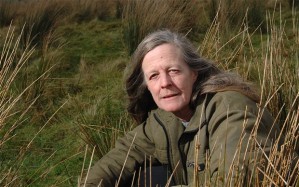 Not simply because it’s been a miserably long time since I last posted here but because of the subject to hand, talking about Sara Maitland’s fusions of science and fiction is truly a long-overdue pleasure. I don’t think I’ve ever read a book of short stories that came across as such a joy to have written. To be frank, the writerly envy Moss Witch and other stories inspires is enough to play merry hell with your entire molecular structure. Having said that, you read a story like A Geological History of Feminism, and you’re very glad that the writer who got to have all this joy was one who can extract from the material a passage of prose as lithe, accomplished and thrillingly quixotic as this:
Not simply because it’s been a miserably long time since I last posted here but because of the subject to hand, talking about Sara Maitland’s fusions of science and fiction is truly a long-overdue pleasure. I don’t think I’ve ever read a book of short stories that came across as such a joy to have written. To be frank, the writerly envy Moss Witch and other stories inspires is enough to play merry hell with your entire molecular structure. Having said that, you read a story like A Geological History of Feminism, and you’re very glad that the writer who got to have all this joy was one who can extract from the material a passage of prose as lithe, accomplished and thrillingly quixotic as this:
And one dawn, so bright that the rising run pushed a shadow-Elsie through the waves and the solid, real Elsie seemed to be chasing it, she had felt a deep surge of energy, more powerful and precise than she had ever felt before. It pushed her up and forward, making her want to sing, to cry out for the beauty and freshness and loveliness of the future. Later, peering down over the charts on the cabin table, she knew what it was. She was sailing over the mid-Atlantic ridge and deep, deep below her, through first blue, then green and down into black water, down below where no one had ever been or could ever go, there was new liquid rock welling up, pouring out, exploding into the cold dark, and crawling east and west either side of the ridge, forming a new, thin dynamic crust, pushing the Americas away from Africa and Europe, changing everything, changing the world. A plate boundary where new rocks are born out of the cauldron below.
This is audacious stuff: the story has Ann, the sole crew member of ‘Elsie’, recounting this journey many years later to her niece Tish, to illuminate how deeply entrenched were the struggles undertaken by the early feminists and to illustrate the resolve they needed to bring about the ground-breaking changes taken for granted today. The image of tectonic plates clashing, oceans breaking and continents shifting is more than a metaphor, though – it’s the real thing, and our involvement in story and character is met in equal measure by a head-spinning tutorial in scientific theory.
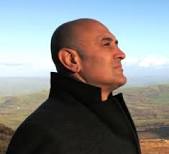 Each of Maitland’s stories has come about in consultation with an appropriate scientific expert, ranging across the scientific disciplines to include Earth Scientist Dr Linda Kirstein, consultant for the story quoted above, as well as an ornithologist, an astrophysicist, a mathematician, a stem cell researcher, one of the particle physicists at CERN, and the University of Surrey’s professor of theoretical physics, Jim al-Kalili, who’s famous enough to get to pose for photographs in which he ruminates towards the sunset like he’s a bowl cut short of a Brian Cox. How these dialogues have fed into Maitland’s process is explained in part by an afterword, accompanying each story, by the relevant consultant. So Dr Tara Shears from CERN explains Dirac’s equation – “a simple, far-reaching collection of symbols that led to the prediction of anti-matter” – which is the basis for Maitland’s troubled twins parable, The Beautiful Equation.
Each of Maitland’s stories has come about in consultation with an appropriate scientific expert, ranging across the scientific disciplines to include Earth Scientist Dr Linda Kirstein, consultant for the story quoted above, as well as an ornithologist, an astrophysicist, a mathematician, a stem cell researcher, one of the particle physicists at CERN, and the University of Surrey’s professor of theoretical physics, Jim al-Kalili, who’s famous enough to get to pose for photographs in which he ruminates towards the sunset like he’s a bowl cut short of a Brian Cox. How these dialogues have fed into Maitland’s process is explained in part by an afterword, accompanying each story, by the relevant consultant. So Dr Tara Shears from CERN explains Dirac’s equation – “a simple, far-reaching collection of symbols that led to the prediction of anti-matter” – which is the basis for Maitland’s troubled twins parable, The Beautiful Equation.![]()
In her acknowledgements, Maitland thanks the scientists and muses, “I wish I believed they had as much fun as I did.” It’s easy to characterise the relationship between a writer and a scientist in this sort of collaboration – and it’s one I’ve experienced, with Liverpool University’s Professor of Evolutionary Biology, Greg Hurst and very recently with the robotics pioneer, Francesco Mondada – as resembling that between an adult and a very clever child. Most of the child’s questions are easy enough to answer, but you’re delighted at her fascination with the subject – and every now and then, she’ll come up with a fresh insight that goes beyond the limits of the workaday. It might leave the scientist with a warm glow and a pocketful of inspiration – during our work together on the 2009 Evolving Words project, Greg wrote more poems than anyone else – but the impact on the writer is seismic. If I experienced that within either one of my scientific contexts, imagine something similar but fourteen times over and you get a sense of the excitement surging through Maitland’s writing.
The spectrum of scientific disciplines commandeered for Moss Witch is matched by Maitland’s range of storytelling textures. There are trace elements of Jorge Luis Borges in the willingness to converse with the prehistory of the modern short story. Though there are no explicit pastiches, we brush up against Biblical legend, Greek mythology, Gothic dysmorphia – in the beguiling Double Vision, which had previously surfaced in Comma’s The New Uncanny – and the pitch-dark charm of the title story’s eponymous candidate for a belated place in the Grimm fairy tale canon, where we might expect her to beat the crap out of any bold young princes who dare to come riding by:
The evening came and with it the chill of March air. Venus hung low in the sky, following the sun down behind the hill, and the high white stars came out one by one, visible through the tree branches. She worked all through the darkness. First, she dehydrated the body by stuffing all his orifices with dry sphagnum, more biodegradable than J-cloth and more native than sponge, of which, like all Moss Witches, she kept a regular supply for domestic purposes. It sucked up his body fluids through mouth and ears and anus. She thought too its antiseptic quality might protect her mosses from his contamination after she was gone.
Rumpelstiltskin, we can note, was a rank amateur.
This is as much about the discoverers as the discoveries and another storytelling element is the speculative biography, similar to the approach used by Zoe Lambert for several stories in her The War Tour collection. One example of a story containing a scoop or two from a real life is the heartbreaking – but so beautiful it manages to be uplifting as well – The Mathematics of Magic Carpets, about the ninth century inventor of algebra, Abū‘Abdallāh Muhammad ibn Mūsā al-Khwārizmī. Maitland’s writing, whether veering towards myth or folklore, biography or contemporary (and indeed future-facing) short fiction, has the ability to charm and cheer even when there is a dark or sorrowful human story to be told. Science is so often the villain in fiction or at best the well-meaning catalyst for a disastrous future (see the James Franco character in the 2011 film Rise Of The Planet Of The Apes as an example of the latter) but Sara Maitland’s collection speaks with a stirring optimism that has been a major influence on my own recent experiments blending science and short fiction. My consultation with Francesco Mondada has produced The Longhand Option, one of the stories in Comma’s Beta-Life: Stories From An A-life Future, launching shortly in Lancaster and Manchester – more details should appear very soon on this blog. 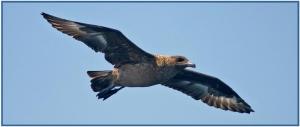
2013 in review
Posted on: December 31, 2013
The WordPress.com stats helper monkeys prepared a 2013 annual report for this blog.
Here’s an excerpt:
The concert hall at the Sydney Opera House holds 2,700 people. This blog was viewed about 11,000 times in 2013. If it were a concert at Sydney Opera House, it would take about 4 sold-out performances for that many people to see it.
